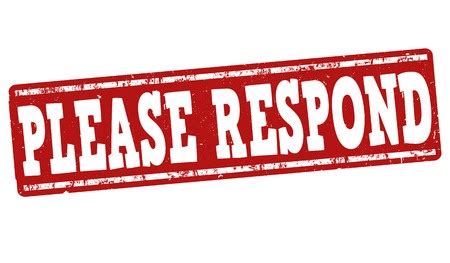Get Your Recruiter to Respond, Guaranteed: A Proven Strategy
Landing your dream job often hinges on getting a recruiter's attention. In today's competitive market, simply sending a generic application isn't enough. You need a strategic approach to ensure your message cuts through the noise and gets a response. This guide provides actionable steps to guarantee a recruiter's reply, focusing on personalization, impactful communication, and persistent follow-up.
Why Aren't Recruiters Responding?
Before diving into solutions, let's address the common reasons for radio silence. Recruiters are incredibly busy professionals juggling numerous candidates and clients. Your application might get lost in the inbox deluge, or it might simply lack the compelling elements to stand out. Other reasons include:
- Generic Applications: Sending a boilerplate resume and cover letter shows a lack of effort and personalization. Recruiters can spot these a mile away.
- Poor Formatting and Grammar: Typos and poor formatting create a negative first impression, suggesting carelessness and a lack of attention to detail.
- Unclear Value Proposition: Failing to clearly articulate your skills and how they align with the recruiter's needs.
- Ignoring Instructions: Not following the application instructions provided by the recruiter or company.
How to Craft a Compelling Email That Gets a Response
The key is to personalize your outreach and demonstrate your genuine interest. Avoid generic greetings and instead try to find common ground.
1. Personalize Your Message: Research the recruiter on LinkedIn. Find common connections, shared experiences, or interests. Mention these specifics in your email to build rapport.
2. Showcase Your Value: Don't just list your skills; highlight your achievements and quantify your impact whenever possible. Use the STAR method (Situation, Task, Action, Result) to illustrate your accomplishments.
3. Tailor Your Message: Carefully read the job description and tailor your email to address specific requirements. Show that you understand the role's challenges and how your experience can contribute to their success.
4. Keep it Concise and Professional: Recruiters are busy. Get straight to the point, highlighting your key qualifications and value proposition within the first few sentences. Use clear and concise language, avoiding jargon.
5. Proofread Meticulously: Errors in grammar and spelling reflect poorly on your professionalism. Always proofread your email multiple times before sending.
6. Strong Call to Action: Clearly state what you want the recruiter to do – schedule a brief call to discuss your qualifications further.
Example Email:
Subject: Experienced Marketing Manager - Aligning with [Company Name]'s Growth Strategy
Dear [Recruiter Name],
I came across your profile on LinkedIn and was particularly impressed by your work at [Company Name] and your experience in [Specific Area]. Similar to you, I have a strong background in [Relevant Skill], and my experience at [Previous Company] involved successfully [quantifiable achievement].
I'm particularly excited about [Company Name]'s recent work on [Specific Project or Initiative] and believe my skills in [Specific Skill 1] and [Specific Skill 2] would be a valuable asset to your team. My resume, attached for your review, further details my accomplishments.
Would you be available for a brief call next week to discuss how my expertise could contribute to your team’s success?
Thank you for your time and consideration.
Sincerely,
[Your Name]
What If They Still Don't Respond? The Power of Follow-Up
Persistence is key. If you don't hear back within a week, send a polite follow-up email. Avoid being demanding, but reiterate your interest and highlight a new piece of relevant information.
Example Follow-Up Email:
Subject: Following Up - Experienced Marketing Manager
Dear [Recruiter Name],
I hope this email finds you well.
I'm following up on my previous email regarding the Marketing Manager position at [Company Name]. I recently completed [New Achievement or Relevant Course] which further strengthens my qualifications for this role.
I understand you're busy, but I'd be grateful for the opportunity to discuss how my skills and experience can contribute to your team. Would you be available for a quick 15-minute call sometime next week?
Thank you for your time and consideration.
Sincerely,
[Your Name]
Frequently Asked Questions (FAQs)
1. How long should I wait before sending a follow-up email?
Ideally, wait at least a week before sending a follow-up. Give the recruiter ample time to review your initial email and application.
2. What if the recruiter responds negatively?
Even a negative response is better than no response. Thank them for their time and feedback, and consider asking for any advice they may have for improving your application strategy in the future.
3. How many times should I follow up?
Two or three follow-up emails are generally sufficient. After that, it's best to move on and focus on other opportunities.
4. What if the job description doesn't mention specific requirements?
Research the company and try to understand their current challenges and goals. Tailor your email to demonstrate how your skills can help them address these issues.
By implementing these strategies, you significantly increase your chances of getting a recruiter's attention and landing an interview. Remember, patience and persistence are crucial in this process. Good luck!

